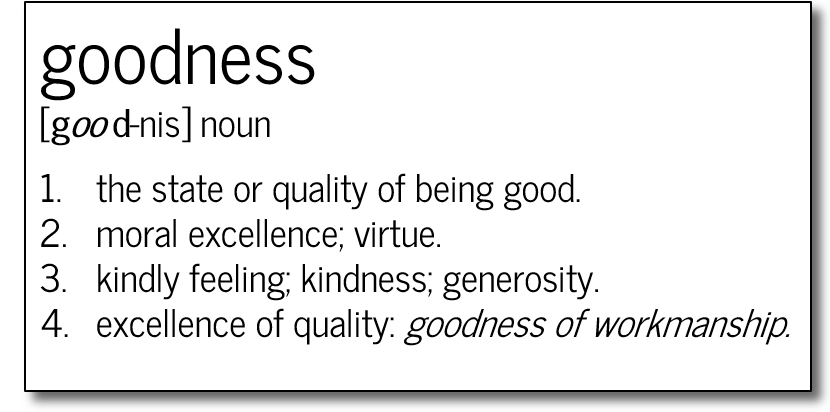
Nurturing the Spirit of Goodness
During the 2016 summer Olympic Games in Rio an unexpected interaction between two female 5K runners made headline news. Abbey D’Agostino from the USA and Nikki Hamblin from New Zealand collided in their race and the video went viral on social media.
Upon colliding in their race, Abbey immediately stopped and helped her fellow runner to get up, encouraging her to reach the finish line. A few moments later when Abbey collapsed from a resulting serious knee injury, it was now Nikki stopping and helping Abbey to get up and complete the race. They both finished the race to standing ovations and hugged each other with big smiles on their faces at the end.
We thirst for goodness.
The selfless act of sportsmanship, kindness, and graciousness melted the hearts of many across the globe. And it reminded me that witnessing goodness in action is not only touching and gratifying but it can be intoxicating as well. We thirst for goodness.
Goodness isn’t a word that you hear too much anymore to describe people and behavior. But perhaps we should use it more often ... and a lot more often.
What do we mean by goodness anyway?

If we want to improve our increasingly polarized, broken, and too often uncivil and corrupt world, then we should place more emphasis on goodness as an important virtue to nurture in ourselves and in others as well. And in the spirit of the groundbreaking research on observational learning by psychologist Albert Bandura, we should attend to goodness behavior, model it, repeat it, and help people to be motivated to engage in it as well. We want to create a culture where goodness is highlighted, reinforced, and encouraged in all aspects of life and for everyone.
Being good and therefore, by definition, being kind, generous, virtuous, and striving toward high quality, should be expected, nurtured, modeled, and encouraged by all. We should start this training very early in life as well.
Goodness has its own rewards. People like and trust good people. People are inspired by those who seek goodness and behave as such.
The Olympic runners, Abbey and Nikki, certainly demonstrated good sportsmanship at the Rio Olympics and were rewarded with flattering media coverage and a rare sportsmanship award given by the International Olympic Committee (IOC) that has been awarded only 17 times in the history of the Olympics (and thus certainly much rarer than any gold medal).
But perhaps what people really related and responded to was the unselfish goodness that each runner demonstrated to each other and how much we desire, and even thirst for, goodness within our very troubled and broken world.
In the spirit of full and complete disclosure, I have been following the career of Abbey D’Agostino for several years, as she recently graduated from Dartmouth College and ran track there; my son is currently a student on Dartmouth’s track team. It was also heartening to hear that my son, and others associated with Dartmouth Track and Field, were completely thrilled and inspired by Abbey’s behavior and mentioned that it was certainly very much in character for her.
If we embrace, encourage, and reinforce goodness in self and others we could pivot our world toward a much better place.
There are many example of goodness out there outside of events as exciting and attention grabbing as the Olympic Games. Perhaps we need to attend to goodness more often and model it as much as we can for a better world for all of us. If we embrace, encourage, and reinforce goodness in self and others we could pivot our world toward a much better place.
So, what do you think?
--------------------------------------------
*A version of this article was originally published by Psychology Today on Sept. 1, 2016.

